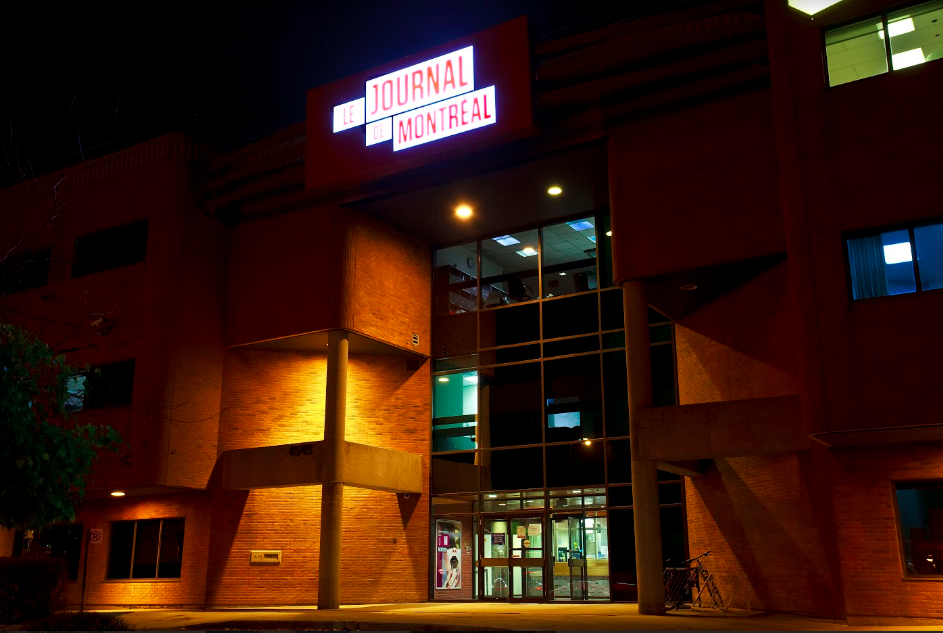Seizure of Journal de Montreal reporter’s computer shows need for shield laws
By Thomas Rose, Law Editor
A journalist in Montreal is anxiously awaiting a decision by a Quebec judge as to whether police will be allowed to rummage through his computer, which was seized earlier this month.
Michael Nguyen is a justice reporter at the Journal de Montreal. Last June he broke a story alleging provincial court Judge Suzanne Vadeboncoeur had engaged in inappropriate behaviour including the abuse of a special constable after a party in December 2015. Judge Vadeboncoeur has since apologized for her behaviour.
The event was reportedly captured on a surveillance video, which was sent to Nguyen and which was then posted to the paper’s website. In his article about the incident, the reporter included details of an official complaint filed against Vadeboncoeur.
The publication of information contained in the complaint may have irked Quebec’s judicial council. On Sept. 21, a search warrant was issued at the direction of the council, according to The Canadian Press.
Journal de Montreal’s managing editor, George Kalogerakis, told The Canadian Press that “the search warrant indicated the council suspected Nguyen illegally accessed its website for details about a complaint against a Quebec Court judge.”
The actions by the police and the council have been widely condemned by news organizations across the country as a clear violation of a journalist’s right to free expression as well as an attack on anonymous sources.
This is where we need to separate views of what the law should be doing as expressed in those opinions, from what the law as presently constituted actually does.
In Canada there is no constitutional right to protect a source. Likewise, there are no so-called ‘shield laws’ common in the U.S. that work to prevent journalists from having to identify their sources.
In fact, as I have noted elsewhere in other articles on this site, Canadian courts, judges, commissioners of public inquiries, Parliament and provincial legislatures all have the power to hold a journalist in contempt for refusing to divulge information, including the name of a confidential source.
Each case must be decided on its own merits. Not surprisingly, this has led to at times conflicting decisions by judges who either side with the state on the need to ascertain the identity of a source or with journalists who consistently argue that without protection of sources vital information in the public interest might never be exposed.
Nguyen claims the information he used was already in the public domain, the implication being there was no anonymous source. Entering into a relationship of confidentiality is a key requirement the courts look for when the right to protect a source is being claimed.
If the information Nguyen used was in the public domain, then the Council’s claim that it needs to know who gave him information about the complaint against the judge may be moot, along with the need to have issued a warrant in the first place.
On the other hand, the reporter’s boss has invoked the principle of protected sources as a defence against police seizing Nguyen’s computer and examining its contents, which is why the computer was sealed until a decision is made on whether police can access the device.
On the question of sources, the Supreme Court has made it quite clear that there must be some give and take between the needs of a free press and the needs of the state. Issues of national security or criminal investigations generally see courts side with the state.
But the courts have also stated that warrants must not be used as an excuse for a ‘fishing expedition’ if police have other means of obtaining the information sought after.
In other words, reporters should not be forced to do the work of police. As the digital wizards at the University of Toronto’s Citizen’s Lab have shown time and again, you don’t need to possess a computer in order to determine who has been sending information to whom.
Ironically, the morning after Nguyen’s computer was seized, the Quebec National Assembly passed a motion supporting the notion of a shield law.
In the U.S., support for such measures have come from local legislatures, which to date have passed some form of shield laws in 49 states.
American shield laws haven’t ended attempts by the state to learn the identity of journalists’ sources, but they have helped clarify the ground rules.

